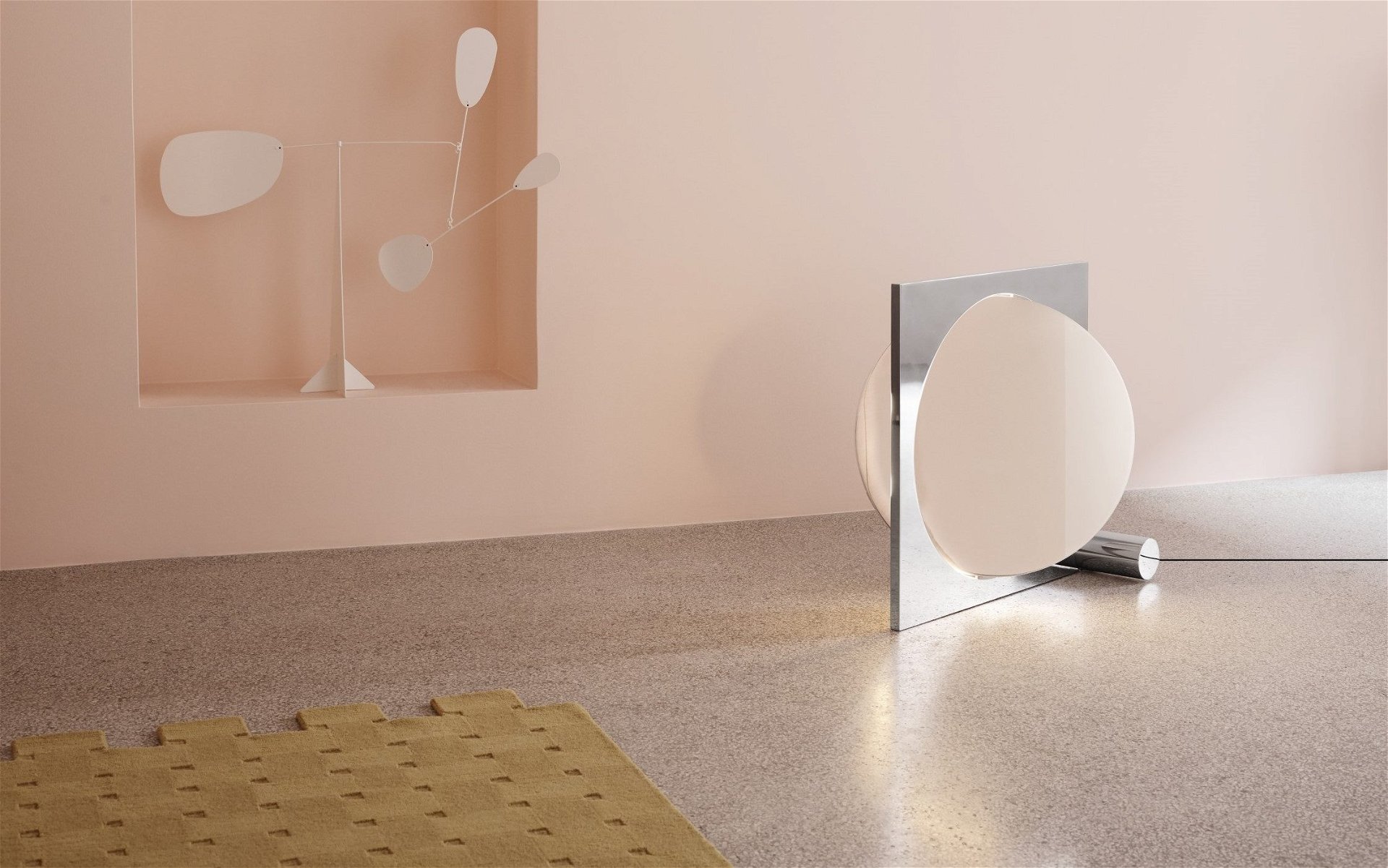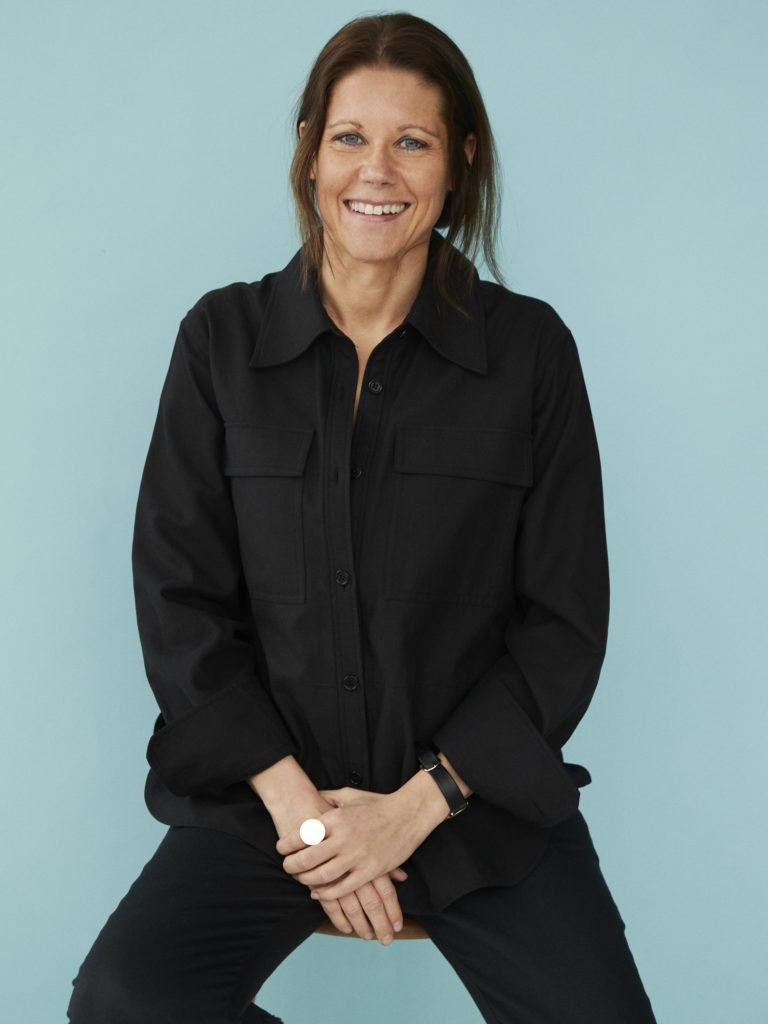Winning Sculptural Design that Inspires Reflection Through Play

Architect Anne Boysen’s fascination with light and spatiality led her to design a lamp that invites for play and exploration. Moonsetter won the Next Danish Design Classic competition broadcasted on Danish television in 2020. In the autumn 2021, the outstanding lamp will be launched, in Denmark only, in collaboration with Louis Poulsen.
Danish architect and designer Anne Boysen teamed up with Louis Poulsen after having created the prototype for her eye-catching floor lamp in the design competition. In collaboration with Louis Poulsen, Boysen continued the final design iterations to start the production of the lamp.
Having worked and experimented a great deal with lighting when decorating showrooms and private homes, Boysen knew all about how to create moods with it. The task in the design competition was to create a floor lamp that shaped spaces within a space.

I am at my desk one night, when I suddenly see it. A ray of moon- light shone through a gap in the curtains. I put different surfaces in front of it and became fascinated with how something white produced a diffused reflection of light, and a mirror, quite another type of reflection. So I asked myself, how do you simplify this in an accessible idiom, making the complex simple and intuitive
— Anne Boysen says
Founded on basic geometric shapes with the circle, square and cylinder, the Moonsetter is merged into a unique and artistic configuration. All three volumes are essential, as each depends on the other in order for the piece to come together as one, both in function and as a construction.
I wanted to create an object with a simple design language, which served as a sculpture, when the light was turned off. And as I have a penchant for graphic forms, because they are so elementary that everyone gets them and because we will also use them 50 years from now, everything went like a breeze from then on. And in all its complexity, the lamp could not be simplified any further.
Everything in it has a function, a raison d’être,
— Boysen explains
The frame of the sculptural floor lamp is made of solid chrome-plated mirror polished aluminium and has a rotating disc that allows the user to customise the reflection of the glare-free light, emitted by an LED light source, which is submerged in the frame. The lamp is turned on and off by the rotating footswitch on the cylinder, which also acts as a dimmer.



The disc rotates 360° around its own axis and is white on one side and reflective on the other. Turned towards the white side, the light becomes soft and diffused, whereas the opposite side reflects the light directly, creating a different expression.
The disc allows us to interact with the fixture and decide how the light should be reflected in the room, and how the room should be reflected in the mirror surface of the lamp.
Moonsetter invites us to explore and not only see the quality of the design, but to feel and sense it too. The exceptional floor lamp blurs the lines between sculpture and light source and serves an aesthetic purpose as well as a functional one.
My designs are all about passing on my own experience to the users. I need to have a gut feeling about every design and to understand it with my body. With Moonsetter, I wanted to activate the whole body as I believe, we learn and experience life best through our senses. You shape the light with the disc, and sense the kind of mood you create. And you dim the light with your foot,
— Anne Boysen explains
Like a piece of art, the sculptural aesthetic of the floor lamp takes centre stage in any interior, where it attracts attention by shaping a space through reflection and light.
In a limited 1st edition of 100 pieces, Moonsetter will be available in Denmark only from October. Later, another 100 pieces will follow in a 2nd limited edition. Each floor lamp will be signed with its own unique serial number.
About Anne Boysen The architect and designer Anne Boysen works in the intersection between art, design and architecture. Boysen’s work is defined by attention to detail, genuine craftsmanship and a feeling of timeless aesthetics. Her architectural training is expressed in her consideration of how we relate to a space and the objects in it, from a broader perspective. The physical and emotional feeling that can be expressed by a design object is important to Boysen. She works with the senses as a key component in
